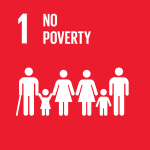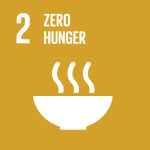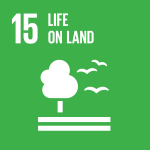
The Orang Asli, the Indigenous peoples of Peninsular Malaysia, have long been known as the people of the forest. For generations, their lives have been interwoven with nature — drawing food, shelter, medicine and identity from the rainforest they call home. To the Orang Asli, the forest is sacred. It sustains life and, in return, they nurture and protect it.
Today, both the Orang Asli and their forests face growing challenges from unsustainable development practices.
“Around this time last year [August 2023], a palm oil corporation entered our customary land without our prior knowledge or consent and started clearing the area by cutting down all the trees and draining the peatland. We tried very hard to stop them, but our efforts did not work. In the end, about 988 acres of our customary land were cleared and replanted with palm oil.” – Nikri A/L Mohamad, Indigenous community member of Air Hitam
This loss is not only personal, it has profound impacts on the surrounding ecosystem. Deforestation on this scale threatens biodiversity, degrades soil and disrupts local weather and water cycles.

Nikri A/L Mohamad harvesting okra on the community farm in Air Hitam. Photo: YKPM
Restoring the forest through agroforestry
In response, the community organization Yayasan Kajian dan Pembangunan Masyarakat (YKPM) partnered with the UNDP-Adaptation Fund Climate Innovation Accelerator (AFCIA) to help the Orang Asli protect and restore their land. Together, they launched an agroforestry enterprise that combines traditional knowledge with sustainable livelihoods.
Across five villages, 30 families have established agroforests, cultivating fruits, vegetables and stingless bee honey within the natural forest without clearing new land.
One of the agroforests, a 2.5-acre community farm in Air Hitam, now supports 11 farmers. During peak seasons, farmers can earn up to US$320 per month, while contributing to forest restoration and community solidarity.
“In response to the situation, we must learn the process of gathering evidence to defend our customary land. Before, it had been difficult to form an effective community group to defend our customary land rights due to our lack of in-depth knowledge on how to deal with encroachers and intruders. Now, through the support of Friend of the Earth Malaysia (SAM), we have been able to gain exposure on documenting land boundaries, GPS mapping and land use. Through the process, I have formed a deep interest in old stories, history and culture for my own village.” – Nikri A/L Mohamad
This work has already brought tangible results: household incomes for participating farmers have grown by 5.4 percent on average. More importantly, it empowers the Orang Asli to take collective action to protect the forests that protect them.
Farmers relaxing together by the rest house. Photo: YKPM
Strength in community values
For many, joining the agroforestry initiative is about more than income. It is a way to preserve culture and uphold values of cooperation, simplicity and harmony with nature.
The Orang Asli place great importance on community togetherness by sharing time, labour and support. This spirit of unity is central to the success of any locally led effort.
YKPM has worked with Orang Asli communities for decades, building trust and genuine friendship. This long-term partnership ensures that initiatives are co-created and guided by local priorities and traditions rather than imposed from outside.
“After listening to the heartfelt sharing from my fellow villagers, I was moved to try it out. What helped was how easy it was for me to join. Continuous encouragement from community leaders and ongoing guidance to grow crops that are specifically fit for my abilities are helping me a lot. I wanted to grow crops to generally support my grandchildren and have their financial needs covered, to be able to lead a comfortable life.” – Remah A/P Brinjal, a local farmer from Tanjung Keruing
Remah Brinjal (seated) working on the Tanjung Keruing farm. Photo: YKPM
Rethinking business for shared prosperity
Traditional business models often leave small farmers with the smallest share of profits. The Orang Asli wanted to change this. Together with YKPM, they developed a shared prosperity model that ensures farmers receive 40 percent of the retail price — the largest portion along the value chain.
YKPM supported the farmers in forming a collective to coordinate supply and logistics, then worked with commercial supermarkets to establish fair partnerships. A major breakthrough came when a leading supermarket chain agreed to lower its profit margins, while the farmers sold their produce on a consignment basis.
Today, Orang Asli farmers supply fresh produce to seven outlets across two major supermarket chains in Peninsular Malaysia. This partnership has strengthened economic resilience, reinforced environmental stewardship and fostered a renewed sense of belonging.

Farmers packing their harvest. Photo: YKPM
Hope for the future
For community members like Nikri, this initiative represents both hope and determination. He dreams of a future where Orang Asli communities continue farming sustainably, where their rights to customary land are restored, and where Indigenous settlements across Malaysia are protected for generations to come.

Photo: Francesco Cabras / IFAD
*
Supported by financial contributions from the Adaptation Fund and the European Union, the UNDP-AFCIA programme has awarded 44 micro and small grants to locally led organizations across 33 countries worldwide, accelerating their innovative solutions to build resilience in the most vulnerable communities.
UNDP-AFCIA is one of two featured programmes under the Adaptation Innovation Marketplace (AIM), a multi-stakeholder strategic platform that promotes scaled-up adaptation at the local level.




